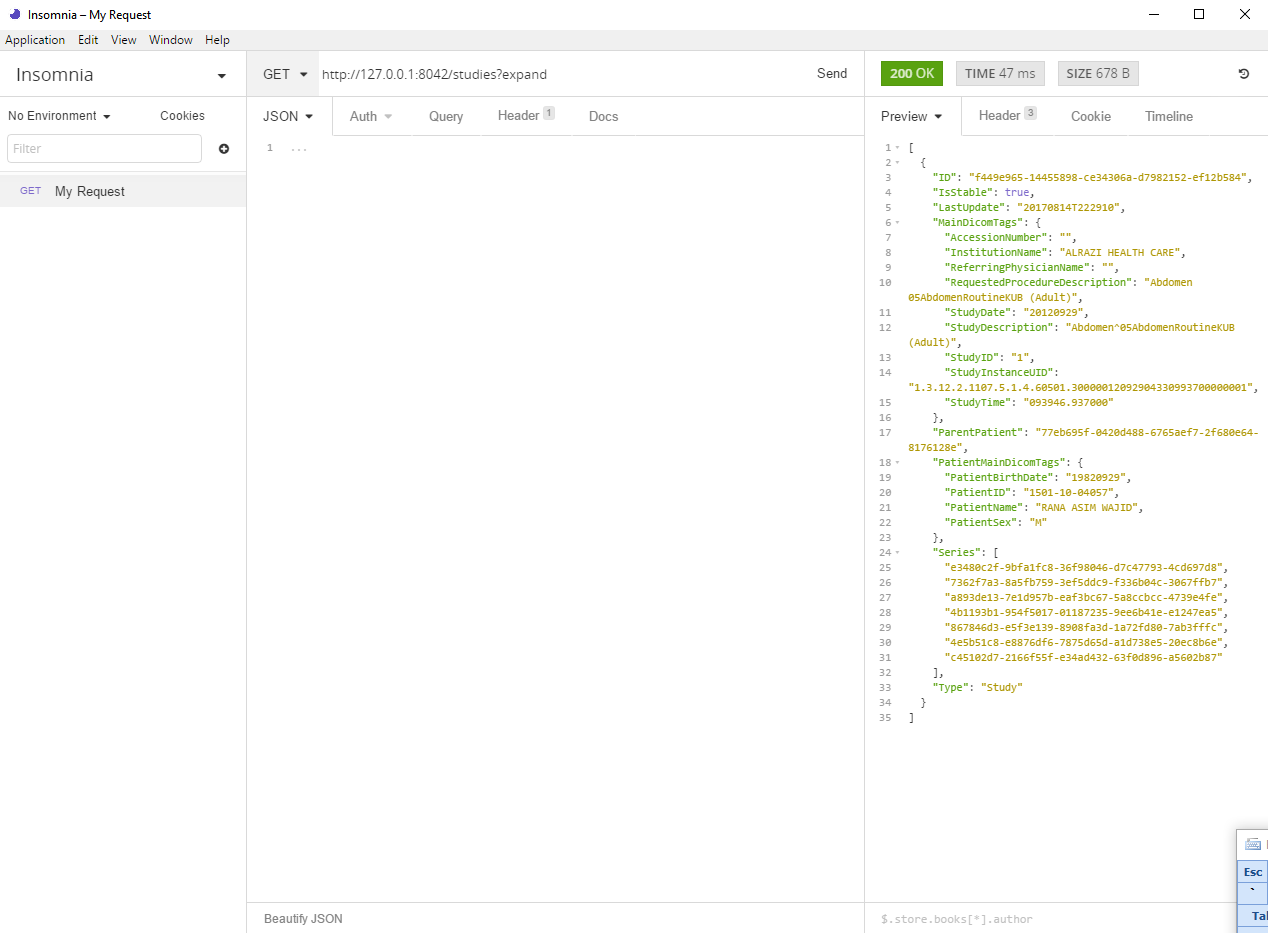Hi all,
I’ve been using (and getting my colleagues to use) Orthanc to present radiological images in our combined clinico-patho-radio conferences. Based on our experience, I’ve written a couple of simple scripts:
- a simple PHP front-end, that allows searching (currently, of Patient Name, Patient ID, Study Date and Modality - including the use of wildcards, e.g. John*, 201505*, etc )
- a web viewer launcher that accepts Patient ID, Patient UUID, Study Instance UID, Study UUID, Series Instance UID and Series UUID.
When loading a Study using the launcher, Orthanc’s built-in web viewer is seen in an IFRAME, with the links to all the series within the study shown on the screen. Likewise, when loading a Patient, the links to all the patient’s studies and series are also shown. This allows the user to quickly change between different series for the same patient / study.
Usage:
- add the Orthanc instance into its own configuration.json as a modality using the name “local”, for example:
“DicomModalities” : {
“local” : [ “ORTHANC”, “localhost”, 4242 ]
},
-
edit config.php to change the $orthanc server variable
-
browse to search.php (supports both POST and GET)
Issues:
- It takes a few seconds to load my small database of about 100 series (about 40 patients). I tried searching my Dose database of about 7000 patients, and the script completely failed. If anybody has any pointers on how I can go about fixing this problem (using PHP, without going into the innards of Orthanc) I’d appreciate it…

- There may be another way to perform modalities/{dicom}/find without declaring Orthanc as another server, but I can’t figure this out…
I’m 100% sure that there are a lot of bugs. Just sharing what I’m doing in my centre. Hope this helps whoever needs it. ![]()
Regards,
Emsy
search.php (5.17 KB)
config.php (581 Bytes)
loadViewer.php (6.45 KB)
